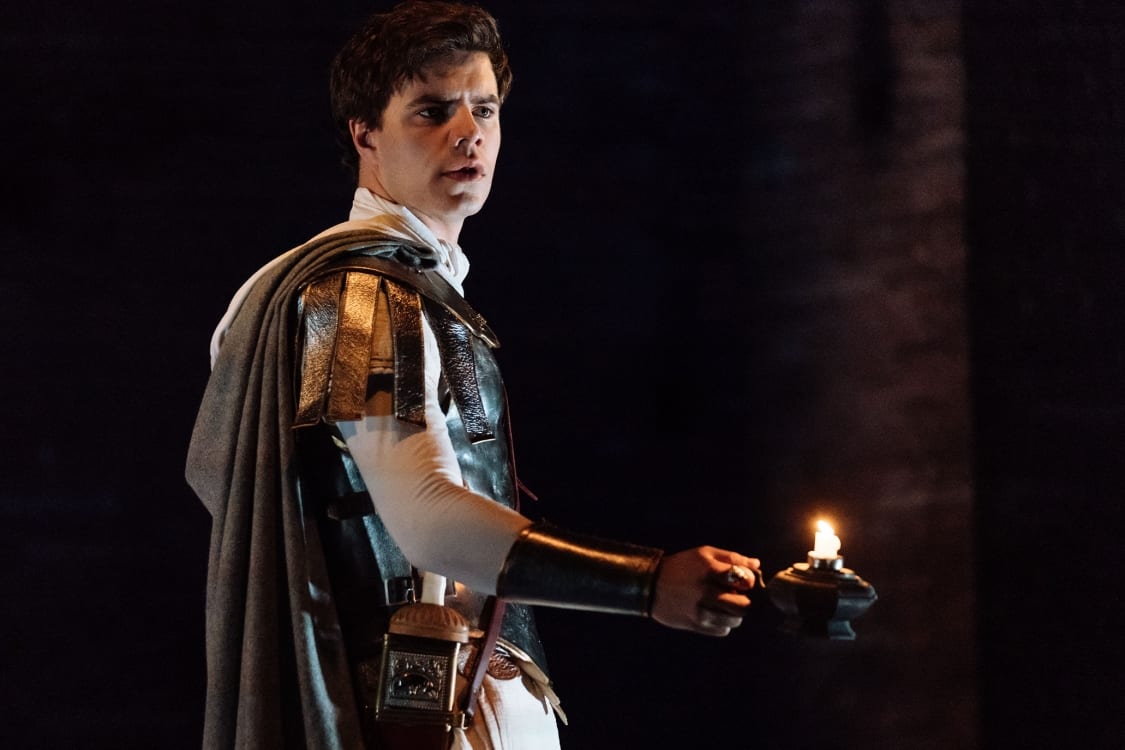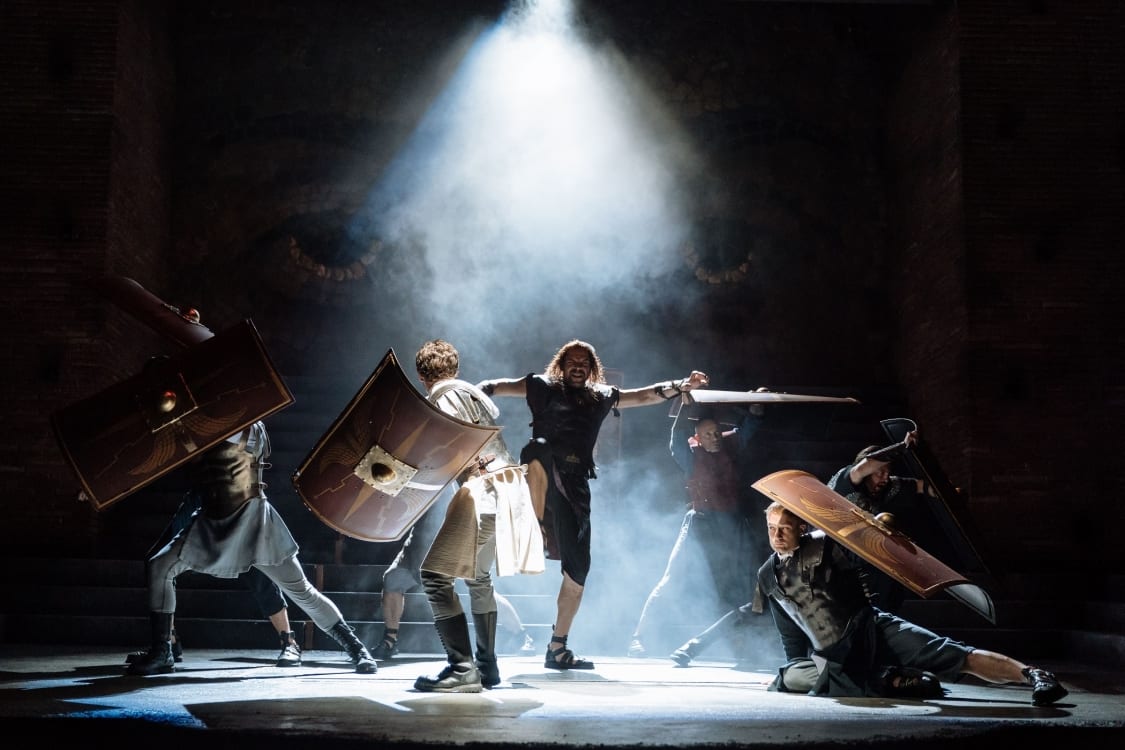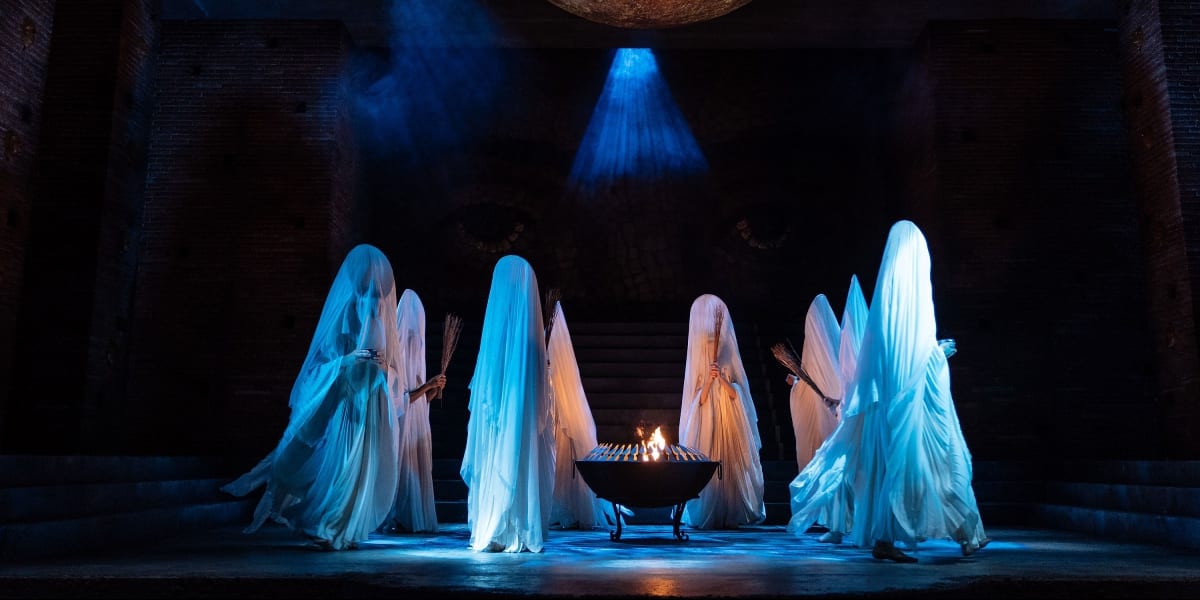The depth of our fascination with Julius Caesar may be gauged from the fact that not one but two modern words for an autocratic ruler ‒ Kaiser and Tsar ‒ are derived from what was, after all, just his family name.

Imperium at the Gielgud Theatre is a two (arguably six) play adaptation by Mike Poulton of Robert Harris’s three Cicero novels Imperium, Lustrum and Dictator. It’s an RSC production, so comes to London from a sell-out run at Stratford (I wish it had gone to Bury St Edmunds in the meantime so I could say it came to Bury St Edmunds, not to praise him, but no matter). This earlier run means the huge cast are already familiar with their often Herculean roles, and the London previews showed no sign of ring rust ‒ if anything they gabbled their lines too quickly at first, but soon settled into a more natural rhythm.
Mind you, they have a lot to get through. Poulton is evidently of the Peter Jackson school of adaptation, and seeing both plays afternoon and evening on the same day is undeniably a bit of a marathon ‒ I would have preferred breaking them up over two days, and I suspect the cast would too. The actor with most to do is of course the excellent Richard McCabe as Cicero, the Roman statesman who, being neither from a Patrician family nor (as people love to remind him) having military experience, has to rely on his brilliance as an orator to succeed. McCabe plays him with a kind of Robert Morleyesque bookish camp, perhaps a little more effete than Harris’s Cicero who we are told exercised every morning to keep in physical shape. Also in for the long haul is Joseph Kloska as his amanuensis Tiro, called upon to record practically everything Cicero ever said, which he had no doubt future generations would want to know about.
Whatever Cicero’s own merits, it was his misfortune to live through a tumultuous period in Roman history ‒ the Catiline conspiracy, the civil war between Caesar and Pompey Magnus, Caesar’s murder, the triumvirate and Mark Anthony’s eventual ousting by Octavian ‒ and it is with these that we concern ourselves, the narrative gap between the two plays being explained by Tiro himself as the result of one of his books going missing. There is, of course, an unwritten rule that any pompous politician shown on the stage these days must be compared to Donald Trump, and given that Pompey is known to have had ridiculous hair people laughed at behind his back, director Gregory Doran can’t resist. (Nor can Poulton resist an anachronistic joke about whether Britain is part of Europe or not.)

But this is always Caesar’s show, especially in Peter de Jersey’s magnificent performance ‒ long before he achieves a shred of power, you can see the fathomless depths behind the eyes of a man who would rather be first man in a village than second man in Rome, and we have no doubt whose eyes are represented by the mosaic that forms the backdrop to Anthony Ward’s versatile set. Unfortunately, this does mean tension flags a little after Caesar is disposed of early in the second play. Given that Shakespeare was largely informed by Cicero’s account, it’s no surprise that what we see here is the story we know, though Harris/Poulton go further than Shakespeare
in giving us a gloriously dull and legalistic Brutus, superbly realised by John Dougall.
(They also don’t spare themselves the thankless task of competing with the familiar version of Mark Anthony’s funeral oration.)
Joe Dixon is excellent, especially as the barely contained wild animal Catiline, as are Nicholas Boulton as Celer and Cassius and Oliver Johnstone as the psychopathic Octavian.

